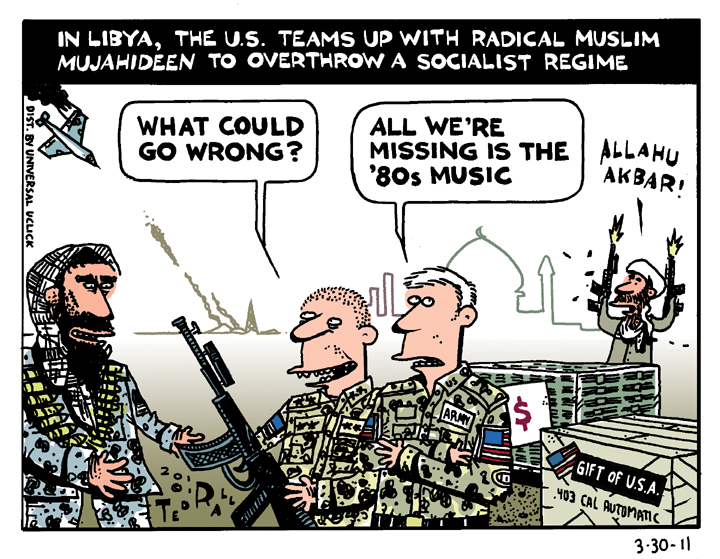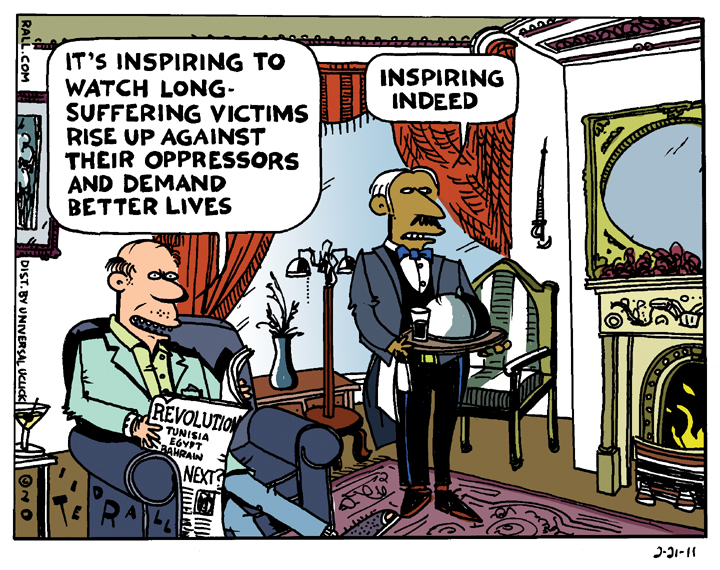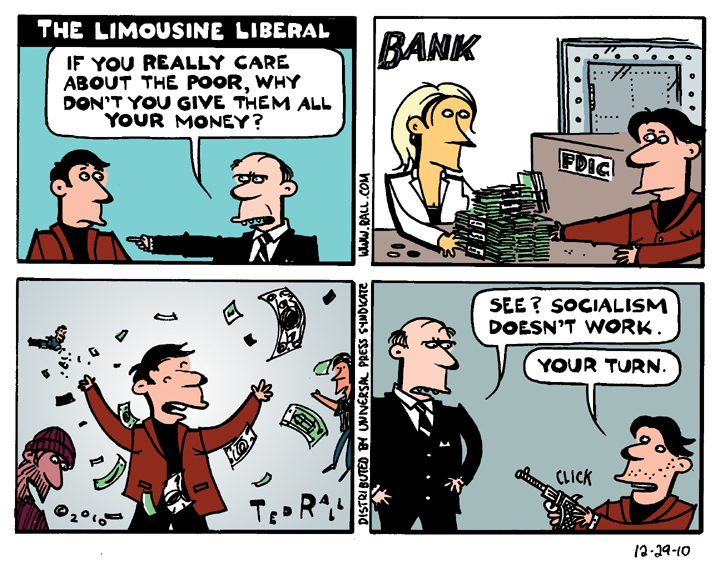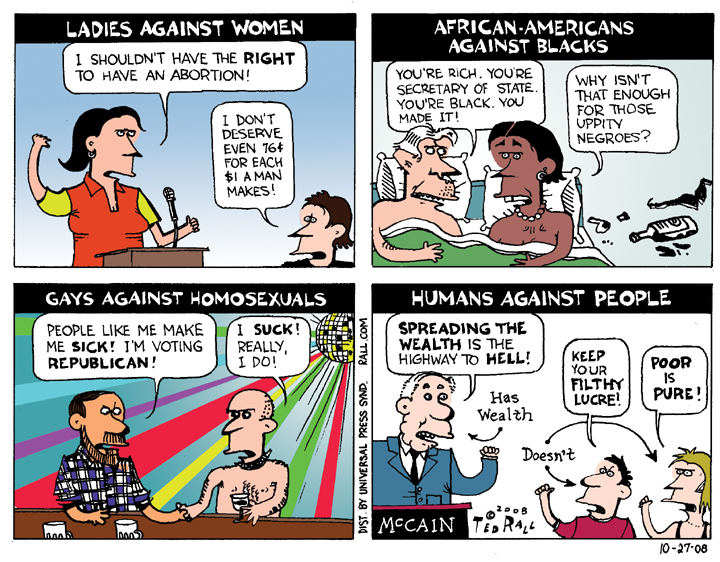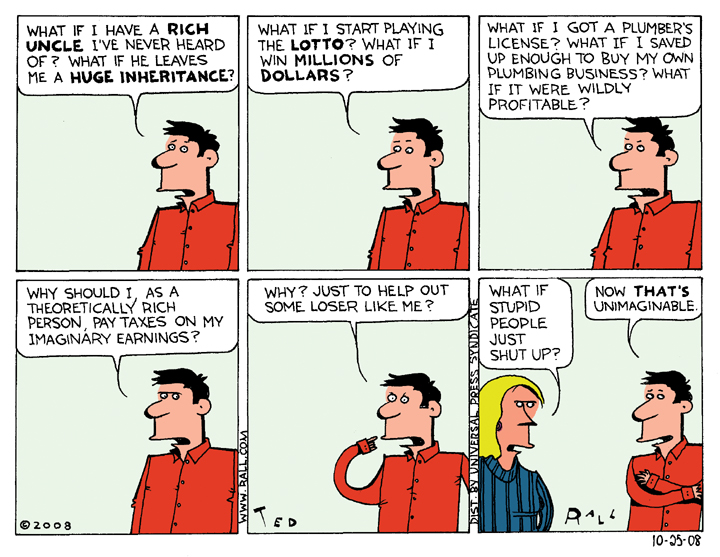Two-Party System Is Not Democracy
We get the government we deserve.
Don’t get mad at the politicians! It’s your/our fault. You/we elected them.
Most Americans accept these aphorisms. Yet they are lies—lies that distract us from the fact that our political system is a farce. Really, we should get rid of this phony two-party “democracy.” And we will. In the meantime, we ought to ignore it.
The two-party system made simple:
Two worthless scoundrels are on the ballot.
If you vote for one of them, a worthless scoundrel will win.
If you don’t vote, a worthless scoundrel will win.
It’s a pretty unappealing sales pitch. How did it last 200 years?
The two-party system, a political mutation unanticipated by the Constitution and dreaded by the Founding Fathers, mainly relies on the “lesser of two evils” argument.
Next year, for example, many liberals will hold their noses and vote for Obama even though he has not delivered for them. They will do this to try to avoid winding up with someone “even worse”: Michele Bachmann, Mitt Romney, etc.
Conservatives will do the same thing. They will vote for Michele Bachmann, Mitt Romney or whomever—even though they know full well they won’t come through with smaller government or a balanced budget—because Obama is “even worse.”
The two-party system is a sick game. Many citizens, realizing this, opt out by not voting. Others resort to negative voting.
In 2008 one out of three Republican voters told pollsters they were voting against Obama, not for McCain. Out in five Democrats voted against McCain, not for Obama.
A quarter of all votes cast in 2008 were “negative votes.” Thirty-eight percent of voters in the 2010 midterm elections crossed party lines from D to R “to send a message.”
To “get the government they deserve,” as master curmudgeon H.L. Mencken asserted, we would have to have a wide choice of options on the ballot. Two is pathetic.
Two parties isn’t even a facsimile of democracy.
Would you shop at a store that only offered two books? Two kinds of cereal? Two models of computers? Two brands of computer?
What about third parties? The Dems and Reps conspire to block the Greens, Libertarians, etc. with insurmountable obstacles. Minor parties can’t get campaign financing, ballot access, media coverage, or seats at presidential debates. So they rarely win.
“With a single elected president if you’re going to have a chance to win the states, which are all awarded on a winner-take-all basis, again you don’t have a chance,” John Bibby, University of Wisconsin professor and co-author of the book, “Two Parties—Or More? The American Party System” told PBS in 2004. “The incentive is to form broad-based parties that have a chance to win in the Electoral College.”
The argument that we, the people, are somehow to blame for the failings of “our politicians” is absurd. Even partisans of the two major parties are substantially dissatisfied with the nominees who emerge from the primary system.
Politics is not what happens on the first Tuesday after the first Monday in November. Real politics is the process of arguing about how we want to live. In America that happens over dinner with our families, over drinks with our friends, over the water cooler at work (if you still have a job).
What happens on Election Day is a circus, a farcical distraction meant to siphon away the vitality of real politics.
Real politics is dangerous. Real politics, as we saw in Cairo’s Tahrir Square, can actually change things.
The two-party system is a twisted con based on fear. If you don’t vote for Party A then Party B, which is slightly more evil, will win. If “your” Party A wins, all you get is the dubious, incremental pseudo-victory of somewhat less suckiness. But Party A gets something infinitely more valuable: political legitimacy and the right to claim a mandate for policies that you mostly dislike.
“Hey, you elected them.”
“You got the government you deserve.”
Not at all.
It’s a terrible, lopsided bargain. You get little to nothing. They use your vote to justify their policies:
No jobs.
One war after another.
Wasting your tax dollars.
Corruption.
More pollution.
(Notice: I didn’t specify which party. Compared to the vast spectrum of possible politics from left to right, which encompasses such ideologies as communism, socialism, left libertarianism, right libertarianism, fascism, etc., the Dems and Reps are more similar than different.)
Until there’s a revolution we’re stuck with these jokers. But that doesn’t mean we have to pay attention.
(Ted Rall is the author of “The Anti-American Manifesto.” His website is tedrall.com.)
COPYRIGHT 2011 TED RALL

